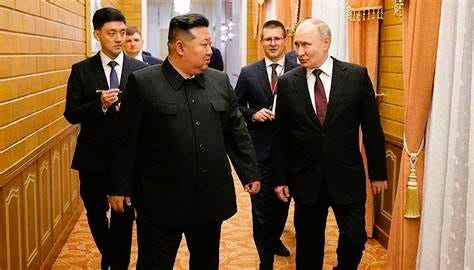Seoul Searching
Why South Korea has only got itself to blame for having special reasons to worry about Russia’s and North Korea’s newly elevated cooperation
On 18 and 19 June, Russia’s president, Vladimir Putin, has paid an official visit to North Korea, with most of the substantial meetings and talks taking place on the 19th. Everyone, inside and outside Russia agrees, that this was an important visit, but there are notable differences regarding why and with what future consequences.
Western commentators – mostly at least moderately hostile toward both Russia and North Korea as well as their respective leaders – are focused virtually exclusively on what this event means for the grand geopolitics of confrontation between Russia and the West. They stress that Moscow is drawing on Pyongyang’s existing military arsenals and its military-industrial complex to obtain supplies (especially artillery shells and some missiles as well) for fighting the war in Ukraine, that both Russia and North Korea are under Western sanctions, and that Pyongyang is keen to receive more Russian technology, for instance, to build out its satellite reconnaissance.
In general, especially since the failure of the North Korean-US summit in Hanoi in 2019, Pyongyang has pursued a policy of further increasing and modernizing its military arsenal, conventional (for instance, with hypersonic missiles and new multiple-launch rocket systems) as well as nuclear. Since March 2022, North Korea has conducted nine tests with long-range missiles capable of carrying nuclear warheads. According to American estimates, the country now has 50 to 60 of the latter.




